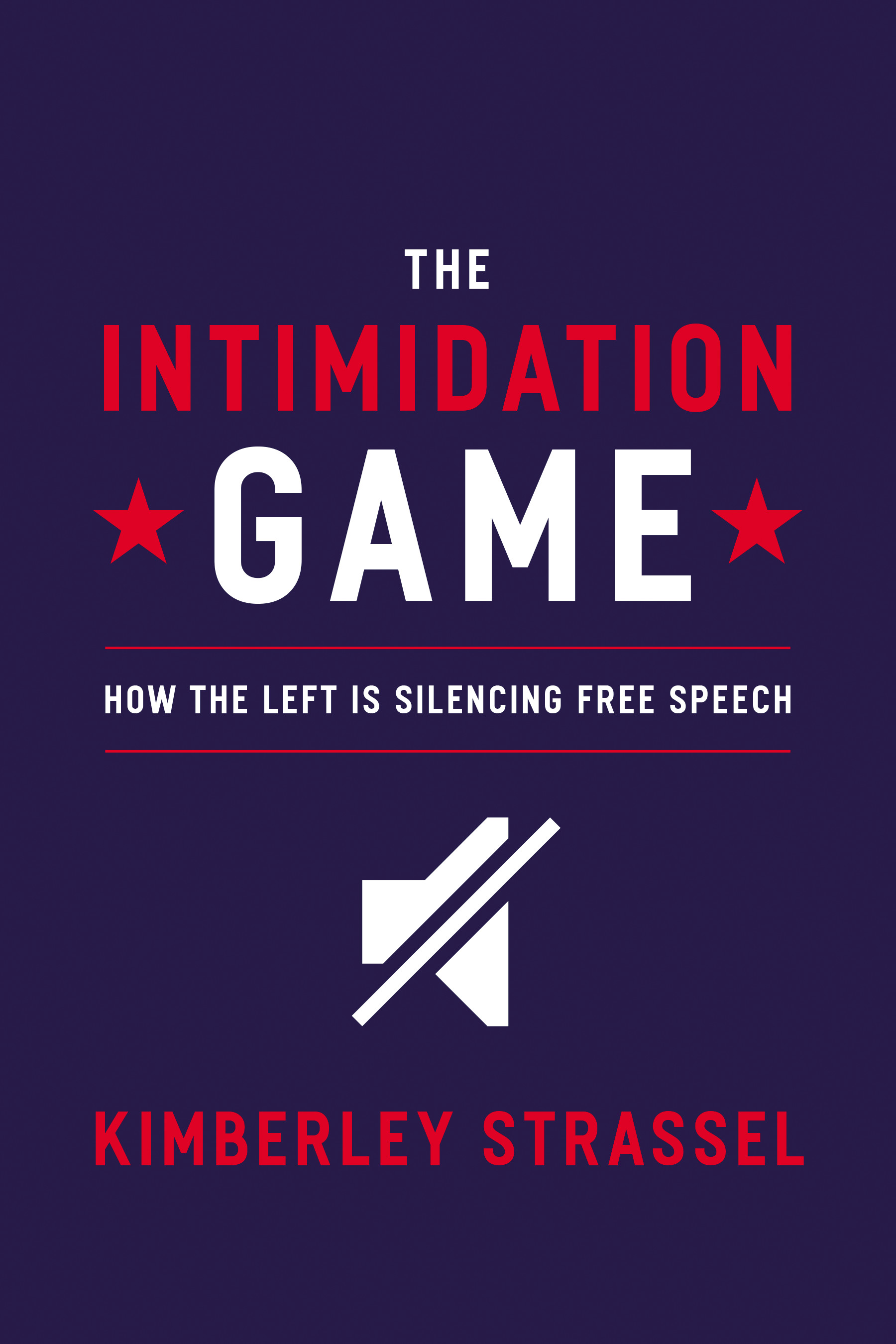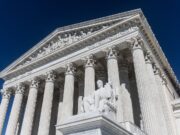Ever since the Supreme Court’s 2010 ruling in Citizens United v. FEC – which allowed businesses and unions to voice their support or opposition to political candidates through independent expenditures – many left-of-center critics have been hell-bent on redefining the First Amendment to allow the government to police political speech at incumbent politicians and rogue bureaucrats’ whim.
As CCP knows from our work defending speech and association rights around the country, those efforts sprawl across all branches of the federal government as well as the states. Now, a new book by Wall Street Journal columnist and Editorial Board-member Kimberley Strassel, The Intimidation Game: How the Left Is Silencing Free Speech, offers a comprehensive look at progressive attempts to dominate the discourse and shut down politically conservative viewpoints.
Strassel’s book will connect the dots on a number of policy battles and scandals in the wake of Citizens United that are familiar to anyone who follows CCP’s work: the IRS scandal, the Wisconsin John Doe investigation, and the pressure campaigns carried out by politicians and activist groups against the Federal Election Commission, the Federal Communications Commission, and the Securities and Exchange Commission, urging these agencies to further regulate political speech. Judging from information provided by the publisher, that’s just the tip of the iceberg.
Whereas progressive critics of Citizens United predicted that corporate political speech would lead to scandal after scandal, Strassel reports the reality: there were scandals resulting from Citizens United, sure enough, but they weren’t caused by individuals and groups exercising their First Amendment rights. Rather, they were perpetrated by overzealous government officials seeking to strike back against those freedoms, and egged on by advocates for increased regulation of political speech.
CCP has extensively documented how this perfect storm of politician and activist pressure led the IRS to take on the role of speech police. A tax collection agency has no business regulating speech, yet progressives nonetheless pushed the IRS to use the nonprofit application process as a chokepoint to silence conservative groups. Applications for tax-exempt status from organizations whose names included the words “tea party” or other conservative-sounding phrases were flagged for additional scrutiny and lengthy delays – some of which are still ongoing.
In Wisconsin, investigators abused their power to conduct armed raids of the homes of conservatives who supported Governor Walker’s reforms to collective bargaining rights. Countless documents were seized, and the families under investigation were placed under a gag order preventing them from telling anyone what was happening to them. The Wisconsin Supreme Court ultimately had to put a stop to the madness, ruling that investigators had “employed theories of law that do not exist in order to investigate citizens who were wholly innocent of any wrongdoing.”
The abuses at the IRS and in Wisconsin illustrate vividly what happens when the left’s cries for more speech regulation meet the government’s natural desire to blunt its critics. And just as disturbing as the initial abuses was the reaction from the press and political partisans. Reporters mostly took politicians’ excuses at face value and quickly moved on to the next outrage, not even stopping to check if the problem had been solved. Partisans found themselves unwilling to defend the rights of their opponents.
Americans of all stripes and persuasions used to proudly proclaim their belief in freedom of speech, and imagine that if government tried to tell them they could not say X, the first thing they would do is say X. But in 21st century America, the censors have found more insidious ways to seize control of speech. If First Amendment rights are to endure, Americans must wise up to the game. Strassel’s aptly titled book is likely to help in this endeavor.
The government isn’t going to ban conservative views or libertarian views or any other type of view – it doesn’t have to. Complex regulation in the hands of powerful, unaccountable government officials can be nearly as effective a form of censorship as outright bans on speech. That’s the lesson from Wisconsin and the IRS.
Strassel’s book will plant a flag in the ground, seeing these scandals and conflicts not as they were portrayed in the moment – which was often as mere trivia for campaign finance nerds – but for what they are: the free speech tests of our time. The Intimidation Game: How the Left Is Silencing Free Speech hits bookstands Tuesday, June 21st and can be pre-ordered online now. We look forward to reading it.














